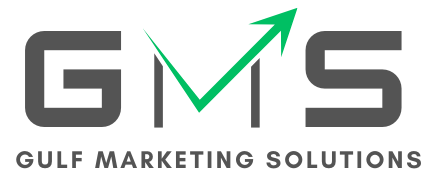Top Tools for Tracking Your SEO Performance
If you’re serious about growing your online presence, tracking your SEO performance is not optional—it’s a necessity. Whether you’re a digital marketer, a small business owner, or an SEO professional, monitoring your efforts empowers you to make data-driven decisions, adjust your strategies, and ultimately achieve your goals faster.
But how do you identify the right tools to measure your success? Today, we’ll give you a breakdown of the SEO metrics that matter most, introduce you to some of the top tools in the industry, and share real-world success stories. By the end of this guide, you’ll know exactly how to take control of your SEO performance.
Top Tools for Tracking Your SEO Performance
Every business has unique needs, so selecting the right tool depends on your budget, experience level, and specific goals. Here’s an overview of some of the most popular SEO tools available today:
Google Analytics
Features:
- Tracks website traffic, user behavior, and conversions.
- Advanced reporting on session duration, bounce rate, and acquisition channels.
Pricing: Free, with a premium option (Google Analytics 360).
Why Use It?
Google Analytics is a must-have foundation for any SEO campaign. Its integration with Google Search Console allows you to monitor organic keyword rankings alongside comprehensive user behavior data.
SEMrush
Features:
- Tracks keyword rankings, backlinks, and on-page SEO.
- Offers tools for competitor analysis and content ideas.
Pricing: Starts at $129.95/month.
Why Use It?
SEMrush is an all-in-one solution for SEO professionals. Its advanced analytics and reporting features make it ideal for experienced marketers looking to gain a competitive edge.
Ahrefs
Features:
- Comprehensive backlink analysis and keyword tracking.
- Content Explorer to find high-ranking topics in your industry.
Pricing: Starts at $99/month.
Why Use It?
Ahrefs excels in backlink tracking and is widely regarded as one of the most accurate tools for keyword ranking. It’s perfect if you’re focused on improving your site’s authority.
Moz Pro
Features:
- Keyword research and ranking tracking.
- On-page optimization recommendations.
- Domain Authority (DA) scoring.
Pricing: Starts at $99/month.
Why Use It?
Moz Pro stands out for its focus on simplicity and ease of use. It’s ideal for beginners and small businesses just getting into SEO.
Serpstat
Features:
- Tracks keyword rankings, backlinks, and site audits.
- Offers affordable plans for smaller teams.
Pricing: Starts at $55/month.
Why Use It?
Serpstat is a budget-friendly choice for small businesses. It provides many of the same features as premium tools without breaking the bank.
How to Use SEO Tracking Tools Effectively
These tools are only as good as how you use them. Follow these best practices to maximize your results:
Define Clear Objectives
What are your goals? Increased organic traffic? Better SERP rankings? Choose metrics that align with your primary objectives.
Set Up Alerts
Use built-in notification systems to stay aware of sudden drops in rankings or traffic spikes that need immediate attention.
Use Reports Strategically
Generate regular reports to identify trends over time. Share these insights with your team and use them to refine your SEO strategy.
Focus on Actionable Insights
Raw data doesn’t drive results—actions do. For example, if you notice high bounce rates, consider revising your landing pages to improve user engagement.
Real-World Success Stories
Meet Lucy, a small business owner who struggled to get her skincare website noticed. After using Ahrefs to improve her backlink profile and Google Analytics to track traffic, she saw a 50% increase in organic visitors within three months.
Another example is Joshua, a digital marketer who leveraged SEMrush to outmaneuver competitors. By analyzing keywords they were neglecting, he identified an untapped niche that boosted his client’s rankings in just weeks.
These stories prove that the right tools—used effectively—can drive dramatic improvements.
Understanding Key SEO Metrics
Before jumping into the tools, it’s essential to understand the key metrics you should be tracking. These metrics are the building blocks of your SEO strategy and define how well your efforts are paying off.
1. Organic Traffic
Organic traffic measures the number of visitors who find your website through search engines without clicking on paid ads. It’s a clear indicator of how well your website ranks for relevant keywords.
2. Keyword Rankings
Tracking where your website ranks for target keywords allows you to assess your visibility on search engine results pages (SERPs). Keyword rankings are a powerful metric to analyze the effectiveness of your content and keyword strategies.
3. Backlinks
Backlinks—or links from other websites to your own—are vital for building your site’s authority. The number and quality of backlinks directly impact your visibility and credibility in search engines like Google.
4. Click-Through Rate (CTR)
Your CTR measures the percentage of people clicking on your link after seeing your content in search results. It’s an invaluable metric for evaluating the relevancy and attractiveness of your headlines, descriptions, and metadata.
5. Bounce Rate
Bounce rate shows how many visitors left your site without engaging further (e.g., navigating to additional pages). A high bounce rate might indicate issues with your site speed, design, or content quality.
Understanding these metrics ensures you’ll get the most out of the SEO tools we’ll cover below.
The Future of SEO Tracking
SEO tracking continues to evolve. AI and machine learning are changing the game, offering predictive analytics and automated recommendations. Platforms like BrightEdge and MarketMuse are leading the charge with AI-driven solutions.
Voice search, zero-click searches, and user experience signals are also shaping the future of SEO tracking. Keep these trends in mind as you refine your strategy.
Take Charge of Your SEO Performance
Tracking your SEO performance is essential to achieving long-term digital marketing success. By choosing tools like Google Analytics, SEMrush, or Ahrefs—and using them effectively—you can make informed decisions and stay ahead of the competition.
What’s your favorite tool for tracking SEO performance? Share your recommendations in the comments below!
Want more tips like this? Subscribe to our newsletter for regular insights and exclusive deals on top tools. or visit our blog section
